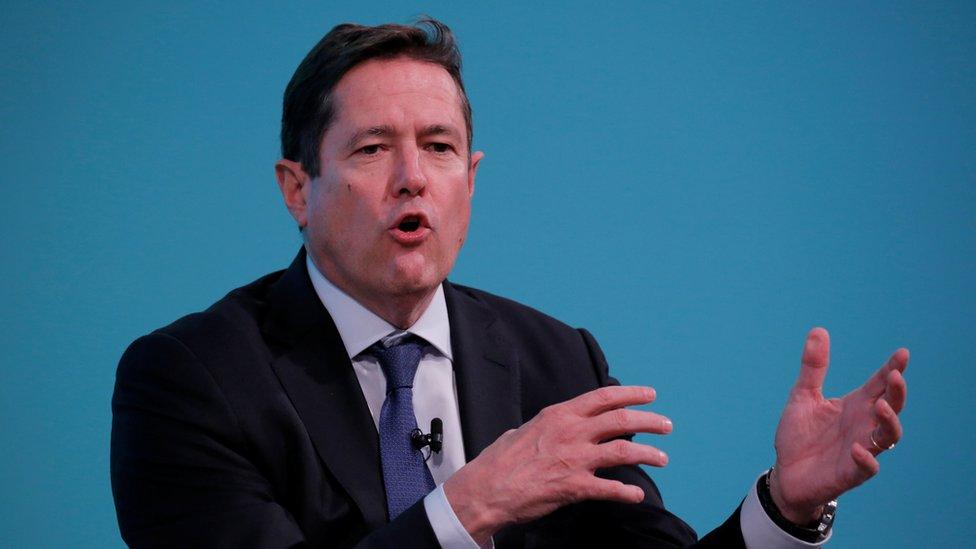Barclays boss wants freedom to recruit from outside UK
- Published

Freedom to recruit the best and the brightest from around the world is more important than rules on where UK companies are allowed to operate, according to Barclays chief executive Jes Staley.
Speaking at a summit convened to bring former pro-Remain and pro-Leave business leaders together to work for a constructive Brexit, he said preserving the concentration of worldwide talent in the UK should be the government's top priority in the upcoming negotiations.
He also described Google's decision to make London its second biggest hub outside California as the single most important announcement since the referendum vote.
"Basing 7,000 Google engineers in the UK is huge. Banks are technology companies that have a balance sheet (lend money) - having the best technology brains here will be a huge anchor for all kinds of business," Mr Staley said.
It's been commonly assumed that banks are most concerned about their ability to sell their services into the EU from London - so called "passporting" - but today's comments show priorities are changing as the chances of retaining those rights look all but dead.
Both Mr Staley and the chairman of HSBC Douglas Flint said that contingency plans to work around that were close to being triggered. Both seemed sceptical that enough clarity on the future shape of the UK's relationship would emerge in time for them to mothball plans to move jobs and functions into the EU.
Unlikely allies
Barclays is planning to move at least 150 jobs to Dublin, which will become a fully fledged European subsidiary. HSBC has already announced plans to move 1,000 jobs to Paris.
Their comments came at a conference convened by unlikely allies: Sir Paul Marshall, successful hedge fund manager and donor to the Leave Campaign and Lord Hill former EU commissioner for Financial Services in Brussels and a staunch Remainer.
"When the referendum vote came in the facts changed. I was struck by how business got on with it and I didn't feel we had the luxury of endless debates as we have seen in the political world," said Lord Hill.
Both Lord Hill and Sir Paul still think the other was wrong but Brexit Secretary David Davis, who addressed the conference, appreciated the display of pragmatism.
The conference could in part be seen as a lack of faith in government's ability to handle the complexity of the negotiations that lie ahead. Lord Hill said that his former colleagues in Whitehall would be approaching them with a theoretical approach rather than one informed by practical experience.
The business lobby was largely in favour of Remain and super-wealthy hedge fund managers like Sir Paul are card carrying members of the global elite that Theresa May has been so scathing about.
Hoping their wishes will be listened to now - however united they are - may be wishful thinking.